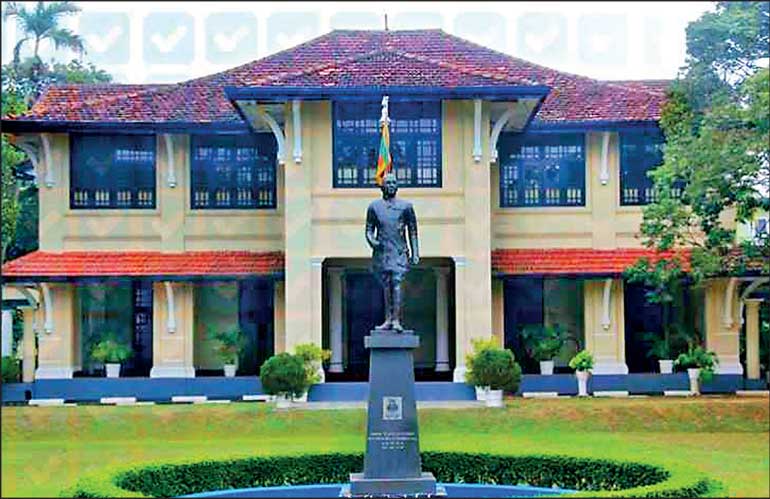Saturday Feb 07, 2026
Saturday Feb 07, 2026
Saturday, 10 July 2021 00:00 - - {{hitsCtrl.values.hits}}

Kotelawala Defence University
|
SJB MP Eran Wickramaratne
|
The Kotelawala Defence University Bill which enables the setting up of a university outside the purview of the University Grant Commission (UGC) is a risk to both military and non-military students. How can we depend on the Ministry of Defence to regulate itself? Since KNDU will be serving non-military students too, it has to be regulated by the UGC to maintain the check and balances and its long term quality of education
Kotelawala National Defence University KNDU) was set up in 1981 by a UNP Government on the land gifted by a former Prime Minister Sir John Kotelawala to provide education to those wishing to join Sri Lanka’s armed forces. Students intending to serve in uniform need a specialised education that is not available in civilian universities. We want to strengthen the intentions of the donor.
But the number of graduates needed by the military in any particular field is limited – for example, just last year, the military needed 40 medical students and one law student, which will change from year to year. You can’t run a whole legal faculty for one student. It makes sense to expand the intake of students beyond the requirements of the military.
SJB is not opposed to the principle of a military university but we are opposed to this bill for three reasons.
Firstly, the self-regulation of KNDU is a danger to the quality of education that KNDU students receive. The regulator and the supplier of education cannot be same but must be distinctly different.
Secondly, military university does not solve the lack of higher educational supply. This is one of our biggest issue stifling progress. We need to increase the quality supply of education opportunities; we don’t want to compel the parents to send their children overseas for higher studies at higher cost and personal discomfort.
Thirdly, limiting the intellectual freedom of civilian students in higher education is a threat to their personal development. To develop a holistic education, an environment of freedom and intellectual space is required.
The important thing is that the check and balances are needed to maintain long-term quality of KNDU. The current bill sets up a university outside the purview of the UGC. This is a risk to both military and non-military student. How can we depend on the Ministry of Defence to regulate itself? Since KNDU will be serving non-military student, it has to be regulated by the UGC.
Sri Lanka has faced a lack of higher education seats for a long time. I am happy to see that the SLPP wants to liberalise the supply of higher education. We mustn’t do what was done to SAITM. The people of the SLFP Government encouraged Dr. Neville Fernando and supported the SAITM. But when they were in the opposition they crippled the SAITM university. However, setting up an independent military university does not solve the overall issue.
The Government needs to enable many suppliers of education, providers can be government, private or non- profit. Some of the world’s most reputed universities are non-profit, non-government. A model that be considered. The State should play two roles; firstly as a regulator to maintain quality control and secondly, as a funder, providing grants and loans to students who cannot afford lodging and fees.
These financial facilities must be provided to students irrespective of whether they are receiving education at government or non-government institutions. Alternative models of education need to adhere to the principle of social justice and high quality, while maximising access.
Finally, what is the point of higher education? Philosophically, it is to widen our children’s minds, improve their skills and prepare them for the challenges that our society will face tomorrow. This requires an environment that stimulates intellectual freedom. A military education may emphasise discipline, but not at the cost of intellectual freedom.
KNDU students, who will soon wear our armed services uniform and other serve in civilian life, need to have the intellectual freedom to develop into well- rounded leaders. This bill creates an environmental of secrecy and fear, which is a threat to the development of the students.
The SJB opposes the bill in its current form and will move amendments to make the bill more accountable to the University Grant Commission.